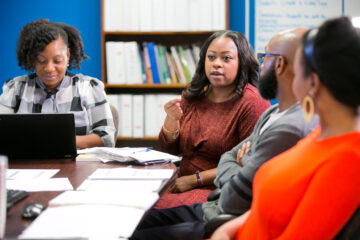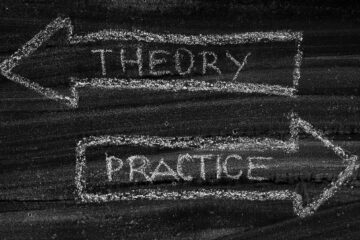In usual times it’s less a question than a form of greeting. Not so now.
One of our facilitators sensed this at the start of a professional learning session with school leaders. So the facilitator changed the usual solicitation of stories of how their schools are faring to ask the group, “How are you doing?” The first to respond was a dedicated leader of an elementary school, who reported on the latest Covid outbreaks and how the school was responding. “That’s not what I asked,” our facilitator interjected. “How are you doing?”
Taken aback, and after a lengthy pause, she burst into tears. She wasn’t doing well. She was under enormous stress, working long hours meeting the needs of her students, staff, and community, all while being inundated with complaints from angry parents. Immediately others shared similar stories and more tears poured forth. They then, just as quickly, turned their attention back to their schools and students, and to doing all they could to advance the prospects of both.
All hands are on deck, and they have been for two years.
As horrific as the current pandemic is, it is unifying in one way—all across the globe, we are all facing the stresses it imposes. There are fears for ourselves, for our families, the changes to our lifestyles, and the challenges of our work, to name just a few. However, education leaders, whether at the school, district or state level, are in a uniquely challenging position. Even pre-pandemic, their careers and the challenges that come with them, often left them feeling as if they were isolated on an island, and now that island is under constant assault. One leader said to us, “Everyone is stressed, and working hard through the pandemic, but only in our profession are people constantly telling you that you’re doing a crappy job.” These educators are under the microscope every single day during the most stressful time most of us have ever experienced.
We are hearing stories of principals stepping back into the classroom to teach classes they are not even certified to teach; superintendents are driving buses. All hands are on deck, and they have been for two years.
That grind is exhausting. Educators are on the front lines facing a visceral threat, with often substandard or non-existent protections. They are also suffering personal challenges like everyone else across society. Their colleagues, friends, and family are falling to the virus. Last week we heard from a middle school principal who had just lost her teenage daughter and still felt the need to return to work to help her staff and students navigate their day-to-day challenges of the pandemic.
These education leaders are overworked, overstressed, and often facing an unrelenting stream of cruel and bitter criticism from their communities and politicians who have differing ideas of how to address education. While the vast majority of the public supports educators, there is an increasing minority who don’t and who voice their disagreement loudly. Cumulatively, these few voices result in what feels like a withering din of criticism. It’s taking a toll. At every level, educators are leaving the profession. Or worse. Dan Domenech, director of The School Superintendents Association, says he’s hearing from a growing number of superintendents about having suicidal thoughts. Too often, education leaders feel that part of the job description is that they must face these challenges alone.
Now is the time to forge a genuine community.
To those leading our schools and districts, we would like you to know that you are not alone. And you are not just a leader, not just an educator. You are a human that needs some space to talk about how you are doing. This care is important for you, for your leadership, for the staff you lead, and for the students in your charge. We urge you to reach out to your peers in whatever association you may be part of or to contact a colleague in another school or district. Or to seek professional help if necessary. If you are fortunate, and don’t feel you need support at this time, please reach out to your colleagues nonetheless. Now is the time to forge a genuine community. They may benefit from you asking, “How are you doing?”
So, how are we as educators doing? We are hurting, but we have not lost our resolve to continue to fight for our children’s future. And while we must carry on, we can take solace as we lean on each other to do so.





